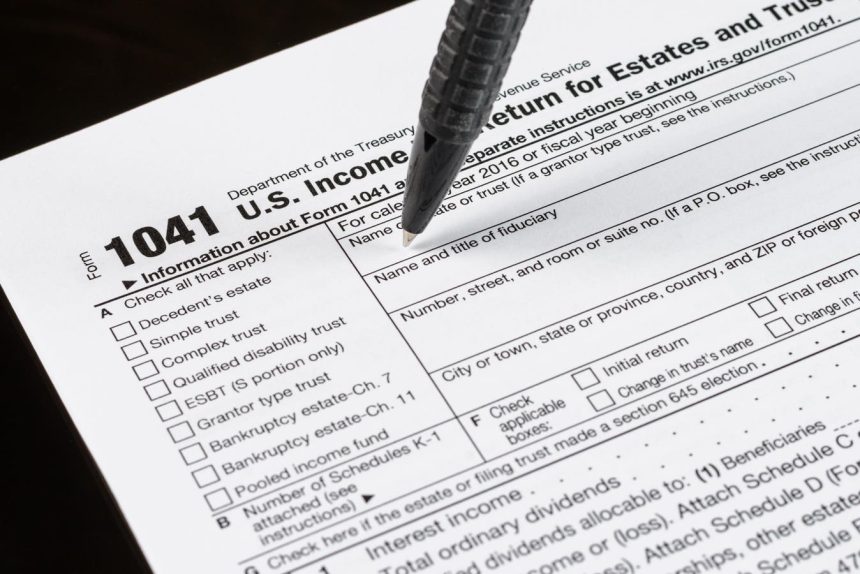Third-party promoters routinely market trust arrangements as a means for taxpayers to avoid or defer federal income taxes. So much so, in fact, that the IRS has a designated webpage to warn taxpayers of these abusive trust schemes. The schemes vary, but often involve promoter assurances that the usage of a trust alone allows the taxpayer the opportunity to omit or defer income or claim deductions that they otherwise could not claim individually on their tax return.
Under one variation of an abusive trust scheme, the promoter suggests that all trust expenses are deductible for federal income tax purposes simply because the trust incurred them. According to the promoter, non-deductible personal expenses (e.g., personal residence, vehicles, etc.) become deductible as trust administration expenses. Because there is no blanket deduction for expenses paid for by trust, taxpayers should be cautious of these claims.
Taxation of Trusts Generally
Subchapter J of the Internal Revenue Code (Code) governs the taxation of trusts. If the trust is not a grantor trust, it must generally file an annual income tax return and pay tax on its “taxable income”. Significantly, a trust’s “taxable income” for these purposes is computed in the same manner as that of an individual with some exceptions.
Individuals may claim deductions for trade or business expenses. Therefore, trusts are also permitted to claim these same deductions, provided the expenses in question were paid or incurred in a profit-seeking activity that is regular, substantial, and continuous.
If the trust does not have a trade or business, there may be other avenues to claim a deduction. For example, the Code permits deductions associated with rental activities. Thus, trusts holding rental properties may claim deductions associated with the properties, including depreciation.
Trade and business expenses and rental-activity expenses are known as “above-the-line” deductions. Other deductions, referred to as “below-the-line” or “miscellaneous itemized deductions,” are more limited. Indeed, for tax years 2018 through 2025, miscellaneous itemized deductions are not allowed at all under section 67(g) of the Code.
Trust-Unique Deductions
As mentioned above, a trust’s taxable income is computed in the same manner as an individual with some exceptions. These exceptions generally relate to the unique nature of a trust. For example, trusts may distribute income from the trust to a beneficiary. In these instances, the Code permits trusts to claim an income distribution deduction, which effectively passes on the tax effects of the income to the beneficiary. For reasons not important here, trusts also have more liberal rules related to charitable contribution deductions than individuals.
In addition to the above deductions, trusts are permitted under section 67(e) to claim above-the-line deductions for “costs which are paid or incurred in connection with the administration of the . . . trust and which would not have been incurred if the property were not held in such trust . . .” Although the double negative is confusing, section 67(e) is really saying that trusts may claim trust administration expenses to the extent those expenses are paid or incurred due to the trust itself.
Treasury regulations promulgated in 2020 provide some additional details on the types of trust expenses that fall within section 67(e). Those regulations provide that a deductible trust administration expense is one that is not “commonly or customarily . . . incurred by a hypothetical individual holding the same property.” Accordingly, a trust may not deduct an expense as a trust administration expense if it is one that is typically paid or incurred also by individuals. Examples of these non-deductible expenses include:
· Certain ownership costs associated with trust property, such as insurance premiums, maintenance and lawn services, and automobile registration and insurance costs.
· Fees for investment advice unless the fees are incrementally more than those that would be charged to an individual investor.
In turn, the regulations provide the following illustrative examples of expenses that are deductible trust administration expenses:
· Certain appraisal fees, such as those used to determine the value of trust distributions.
· Tax preparation fees related to the trust’s income tax return.
· Certain fiduciary fees.
Personal Expenses Not Deductible
Similar to individuals, trusts cannot claim personal, living, and family expenses. This includes expenses paid on behalf of beneficiaries and other third parties. A good illustration of this point is found in Alfred I. DuPont Testamentary Trust v. Comm’r, 514 F.2d 917 (5th Cir. 1975).
In that case, the taxpayer built a mansion on 300 acres of property, which he referred to as “Nemours”. When the taxpayer passed away, his interest in Nemours went into a testamentary trust. After his death, the taxpayer’s surviving spouse resided in Nemours. For the years that she was living there, the trust claimed deductions for general maintenance of the property, to repave roadways and walkways, and to purchase a jeep and dump truck. The IRS disallowed all of these deductions, contending that the deductions were not deductible trust administration expenses.
In court, the trust argued that the expenses were deductible trust administration expenses because the trustee had a legal obligation under the trust arrangement to pay and maintain Nemours. Although this may have been true, it did not matter for federal income tax purposes. Because Nemours served as the surviving spouse’s personal residence, any expenses were also personal and not deductible.
Conclusion
Taxpayers should be wary of claims that trust expenses are automatically deductible simply because they are paid by a trust. Because trusts are subject to many of the same taxation rules applicable to individuals, with some exceptions, taxpayers should be able to point to a specific Code provision prior to comfortably claiming a trust-related deduction.
Read the full article here
















